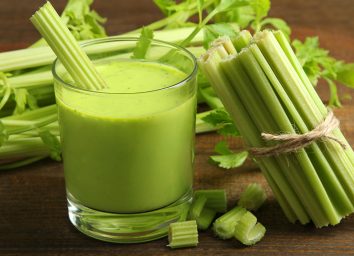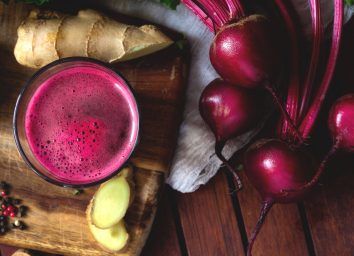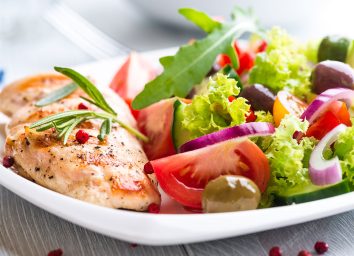What Happens to Your Body When You Eat Celery, Say Experts
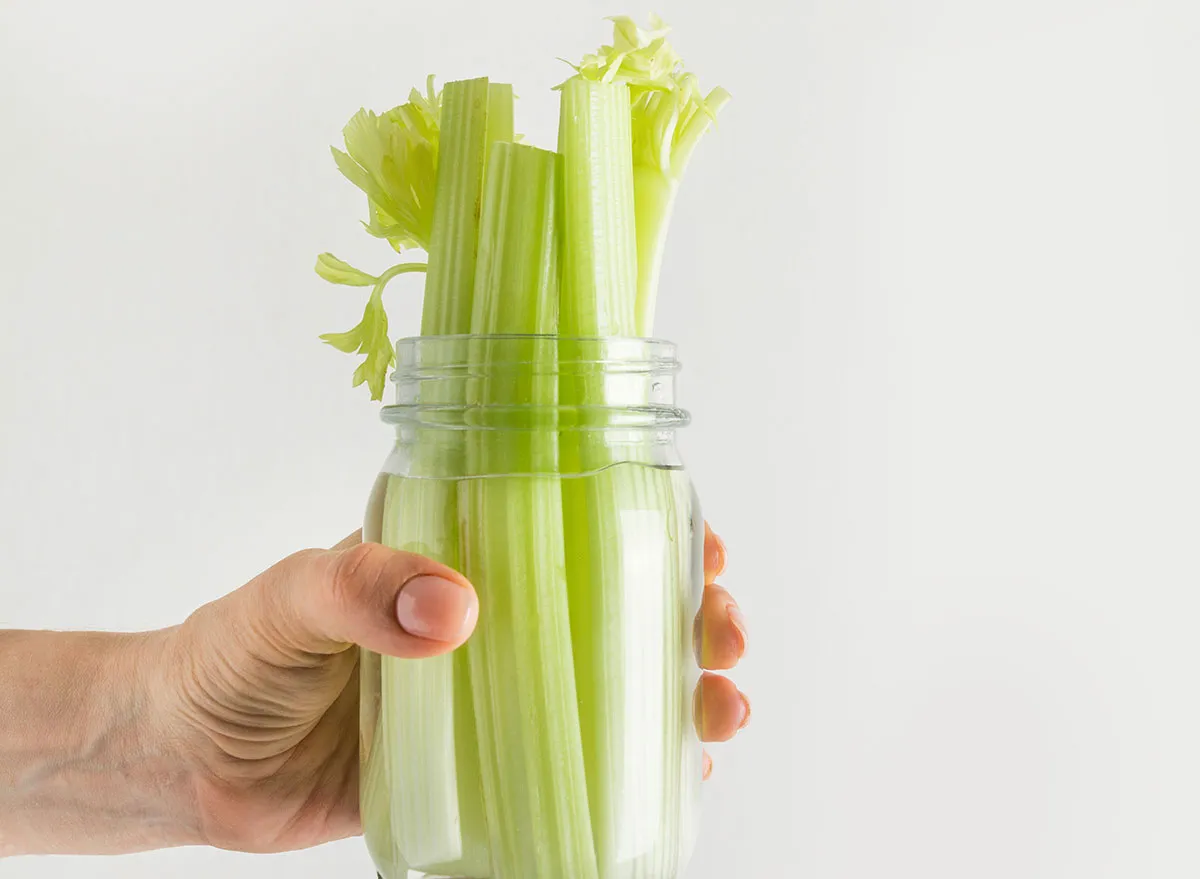
Thanks to the popularity of celery juice, this once not-so-popular cruciferous vegetable has now been glorified. Rightfully so, celery deserves a place at the table for all of the health benefits it offers. But don’t worry, you don’t have to drink celery juice to get the benefits of this veggie. If you love to eat celery, you’re still reaping all of these amazing benefits!
Celery is high in electrolytes, vitamins, and fiber and can be an easy addition to lunch or a snack by serving raw. Buy a stalk for easy snacking, and simply store it in the fridge pre-chopped submerged in water to keep it crisp for longer!
Now, what are those health benefits if you eat celery? Here’s what happens to your body when you chomp on this green veggie stick, and if you’re looking for even more healthy meals, be sure to check out our list of 22 Meals to Melt Belly Fat in 2022.
You will shed water.
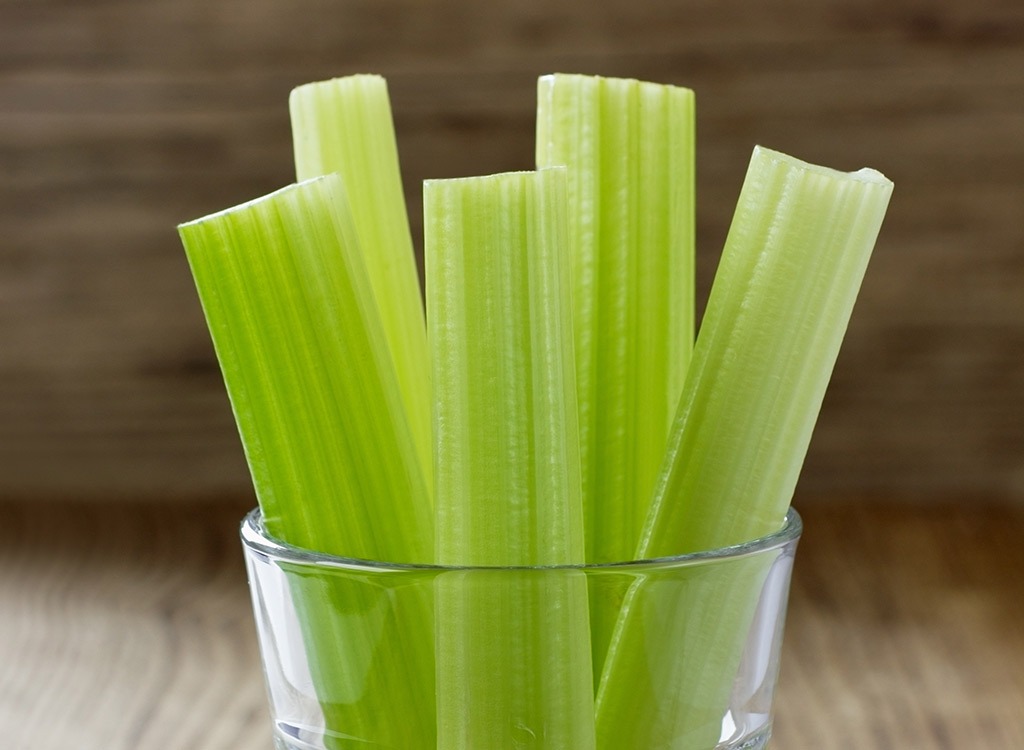
Thanks to phthalides, a compound in veggies that is credited with removing excess fluid, celery’s natural diuretic effect will assist in flushing water from the body. If you’re feeling puffy, no need to overdo it on over-the-counter supplements. Load up on cruciferous vegetables like celery to help beat the bloat! And you can also try these 10 Best Foods That Help Flatten Your Belly.
You’ll be more hydrated.
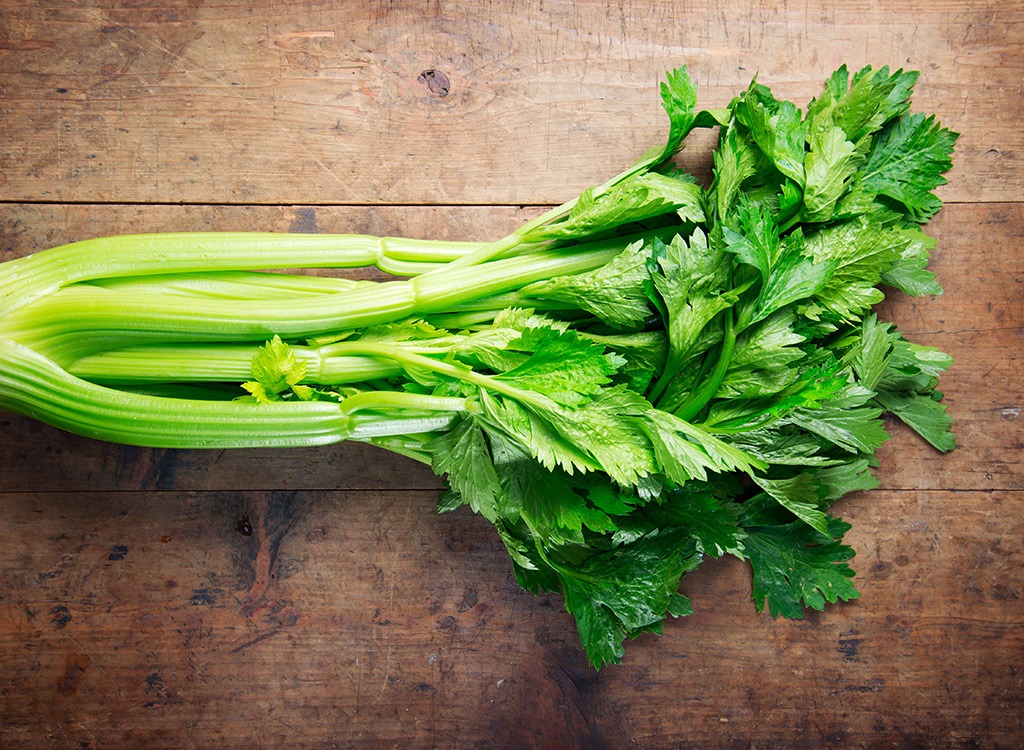
As a source of electrolytes, celery will help move water into your cells to naturally hydrate you. If you’re feeling particularly parched, keep celery cut and packaged in your fridge to snack on when you go to get a drink of water. Electrolytes are specifically important around exercise. Consider packing celery and peanut butter as a pre-workout snack with your water for added hydration—especially if you eat celery with The #1 Peanut Butter to Eat, According to a Dietitian.
You’ll burn extra calories.
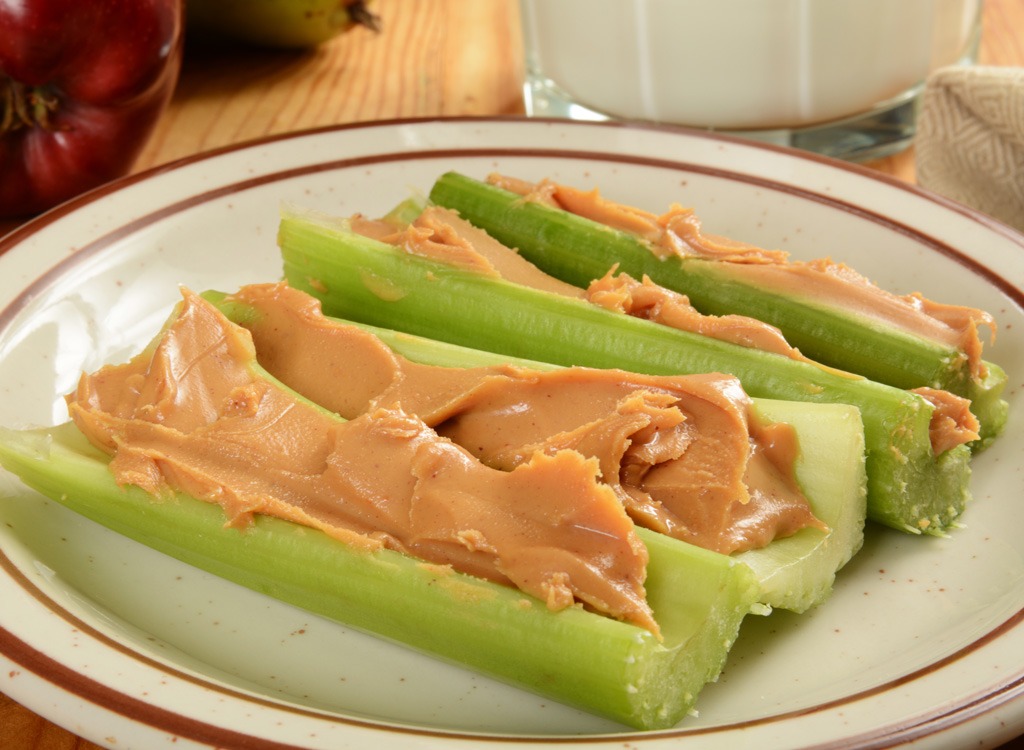
Celery is credited as one of the only foods that cause you to burn more calories than you take in. At only 9 calories per stalk, this is due to the Thermic Effect of Food. In other words, the amount of calories it takes the body to simply digest and absorb celery is greater than the total calories in celery. If you love celery, you’re in luck! Munch away.
Your blood might be thicker.
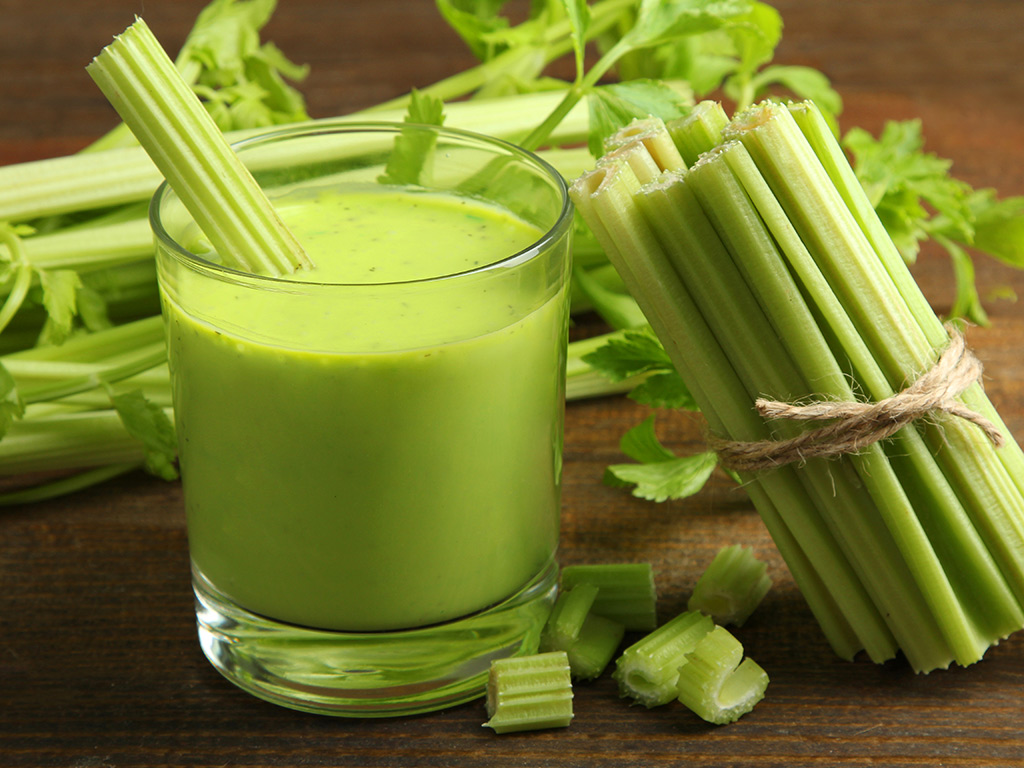
Vitamin K is found in most green veggies and is responsible for slightly thickening your blood and improving blood clotting! This improves your body’s ability to respond to minor cuts or injuries via blood clotting.
You can get a healthy dose of Vitamin K from many green vegetables. Here’s a list of foods that are rich in Vitamin K!
You’ll be more regular.
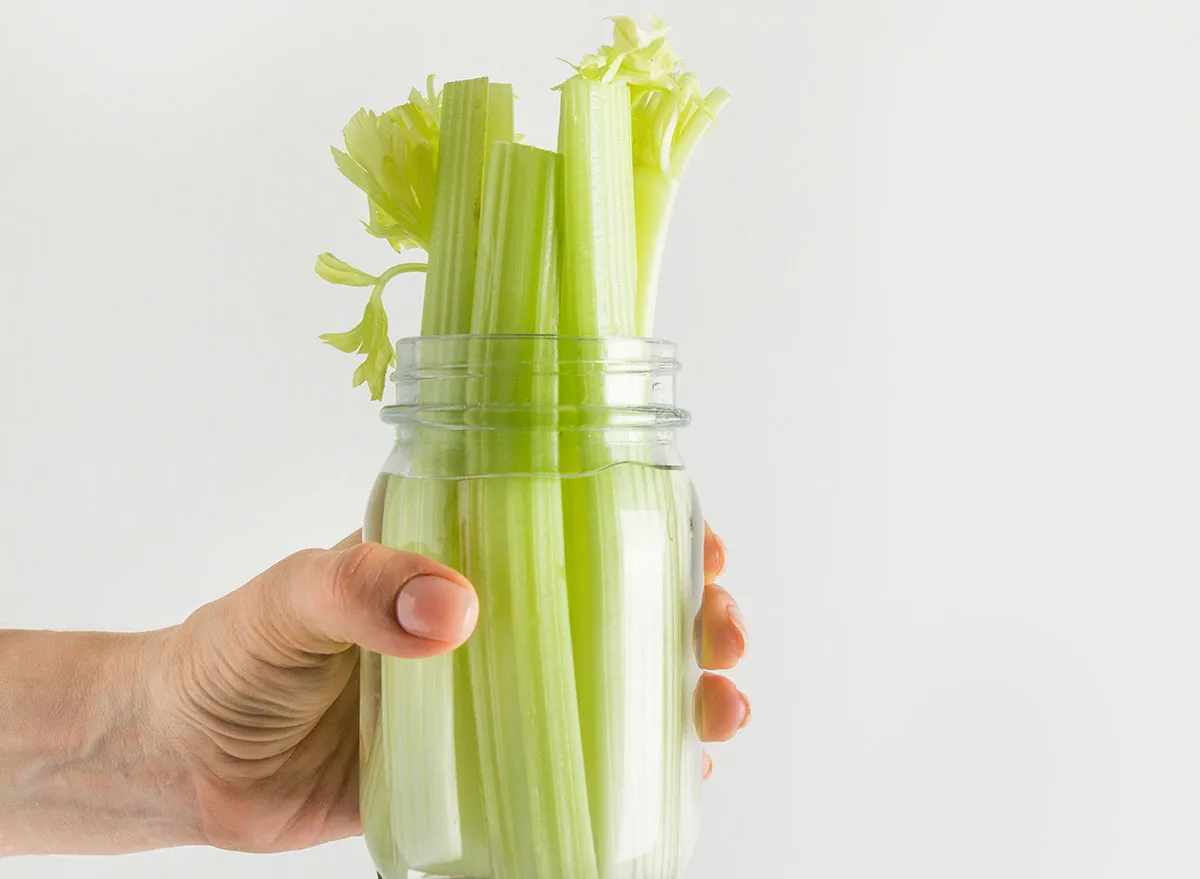
High in fiber, celery will help improve digestion by keeping you regular. If you struggle with eating enough fiber, munching on a cup of raw celery can help meet the daily fiber recommendation of 25 to 38 grams!
“Celery is low in calories and high in water content. And it’s super crunchy,” says Lisa Young, PhD, RDN and author of Finally Full, Finally Slim.
You may lower blood pressure.
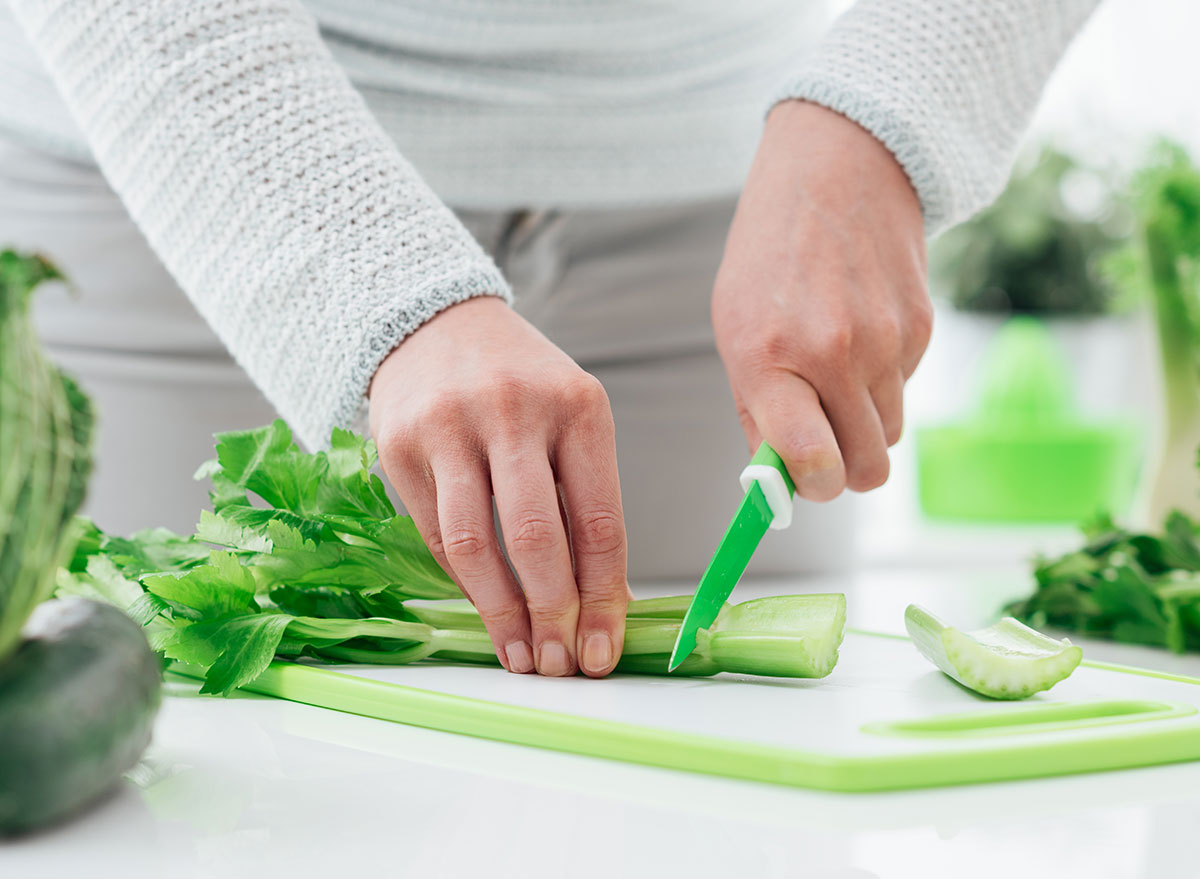
Potassium is the superstar electrolyte known for managing blood pressure. Improve your blood pressure naturally through increasing high potassium veggies like celery! Following a diet that is high in fruits, vegetables, and whole grains and low in sodium is actually proven to lower your blood pressure with diet alone!
Check out these foods to lower your blood pressure through diet changes!
Celery can help fight cancer cells.
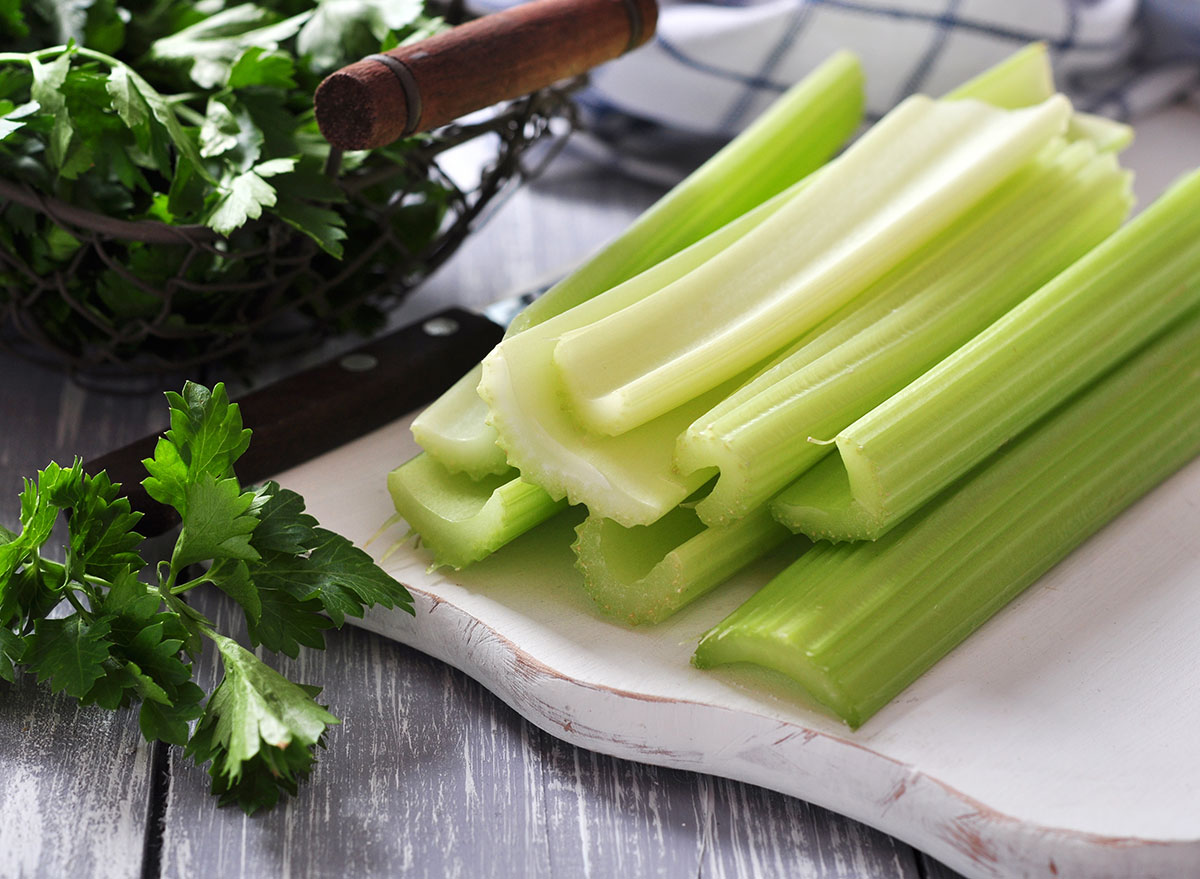
Antioxidants are the name of the cancer-fighting game and if you eat celery, it’s chock-full of them. Antioxidants help neutralize cancer-forming cells in the body and restore damaged cells! These nutrients are powerful.
“Celery contains apigenin and luteolin. Both are antioxidants that may reduce the risk of cancers and protect the body from free radical damage,” says Lacy Ngo, MS RDN.
Get even more healthy tips straight to your inbox by signing up for our newsletter!

